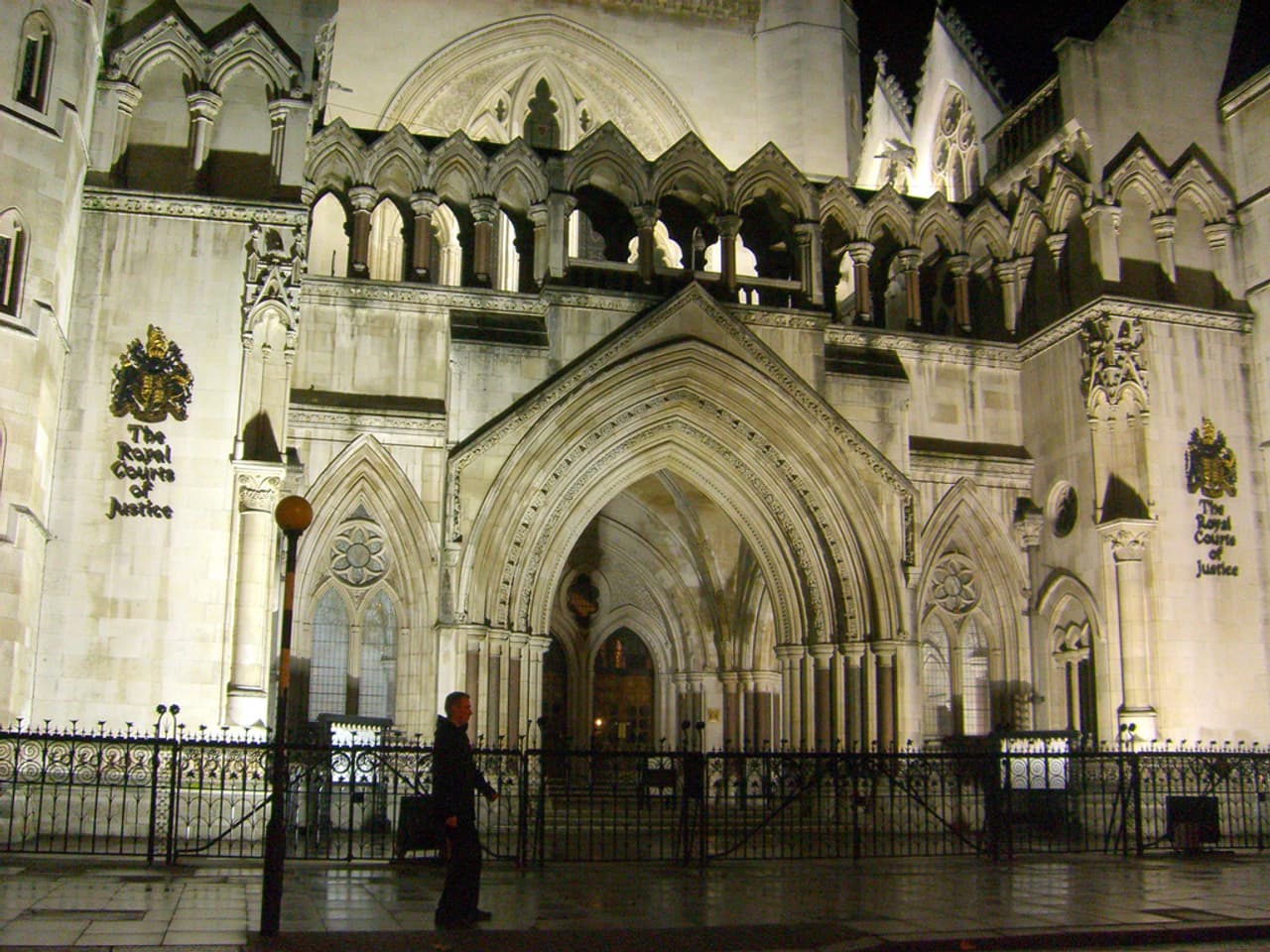
Analysis: Human rights claims to lose out if legal aid reform goes through
The Royal Courts of Justice in London
Under ruggedly beautiful mountains close to Ecuador’s border lies billions of dollars worth of copper owned by British-based firm Monterrico Metals.
In August 2005, hundreds of Peruvian subsistence farmers and their families staged a protest against Monterrico.
The protestors said the British-based mine owner was operating unlawfully, and that the mine’s potential environmental impact was not sufficiently taken into account before the project began. The Peruvian National Ombudsman later upheld that view.
Armed police were waiting for the protesters and a violent battle ensued. Local people were allegedly sexually abused, tortured and forcibly detained. One protester died. Many are still traumatised.
The farmers’ campaign for what they consider to be justice has been recently resolved thanks to the UK legal system. But there is now a real danger that the Monterrico case could be one of the last of its kind if the coalition government’s Legal Aid, Sentencing and Punishment of Offenders Bill, which on Monday reaches the report stage, becomes law.
All in all, the effects would be to drastically curb the availability of access to justice by individuals whose human rights are abused by British companies in their overseas operations.
Shanta Martin, lawyer, Leigh Day
Contemporaneous images appeared in Peruvian newspapers of protesters handcuffed with hoods over their heads before, it is claimed, they were beaten with sticks and whipped. Protestors complained of having noxious substances sprayed in their faces and being forcibly detained for days on end.
The farmers insisted mining officials directed the armed police – an allegation the mine owners vehemently refute.
Unable to get legal redress in Peru where the protesters were labelled by the authorities as terrorists, a claim was filed in the UK two years ago against Monterrico .
The contested case was due to come to court this month. But in July an out of court settlement saw 33 Peruvians receive substantial but undisclosed compensation.
Though Monterrico settled without admitting any liability or guilt, the case was seen as a victory for the farmers and their legal British representative, Leigh Day, one of the UK’s most prominent human rights law firms.
‘Our clients were tortured by police in a remote mining camp high up in the mountains. They held little hope for justice in Peru,’ said Shanta Martin, a Leigh Day lawyer representing the farmers. ‘But by bringing their claim in England, our clients received compensation that was unobtainable in Peru and a great sense of victory in their battle for recognition.’
One major lesson from cases such as this is that transnational companies can’t operate in developing countries thinking they can’t be pursued.
But will similar claims be pursued in the future if the coalition government’s Legal Aid, Sentencing and Punishment of Offenders Bill becomes law?
A villager’s skin is affected by pollution allegedly linked to Trafigura – Flickr / mitbbs2008
Leigh Day, which also successfully fought Trafigura on behalf of more than 30,000 Ivorians allegedly poisoned from toxic waste, does not think so. It believes the chances of indigenous communities and others living in developing countries getting legal redress against human rights violations associated with the activities of multinational companies based in the UK will now be much, much harder.
This is because under Sections 41 – 43 of the proposed reforms are three clauses that will make it all but impossible for claimants of human rights abuses to pursue claims in British courts.
Expensive City law firms
Today, successful claimants can get guilty defendants to pay their legal fees, including their lawyers’ so-called ‘success fee’. These fees allow lawyers operating on a no-win no-fee basis to pursue complex claims, including cases of human rights abuses against the world’s largest companies.
Shanta Martin, lawyer, Leigh Day
But if the Ministry of Justice proposals pass into law, successful claimants will have to meet the cost of success fees themselves.
In addition, claims could soon be limited by a changed ‘proportionality’ requirement.
While a proportionality requirement already exists, currently the costs of a successful claim can be recovered from the defendant company if the costs were ‘necessary’. The costs of litigating complex human rights claims against multinational companies almost always exceed the compensation, not least because companies use expensive City firms that fight tooth and nail. With the government considering removing the ‘necessity’ element from the test, the costs spent on bringing the case may not be covered even if the case is won.
This means the ability to bring claims to court in all but the most straightforward cases will be prohibitive. ‘The effects would be to drastically curb the availability of access to justice by individuals whose human rights are abused by British companies in their overseas operations,’ says Martin.
Leigh Day believes it is fair that legal costs are controlled, but that reforms could and should still allow for human rights cases against multinationals to proceed.
The government appears to reject any possibility of a compromise amendment to its bill. Whitehall sources point to the Trafigura judgment, which racked up over £100m of legal costs. The company, which agreed an out-of-court settlement, was forced to pay the costs, though elements of the cost settlement are subject to appeal.
‘It will still be possible to bring claims against multinational companies once our reforms to no-win, no-fee conditional fee arrangements are implemented,’ a Ministry of Justice spokesman said, ‘but we believe that the costs involved will be more proportionate to the sums in issue.’
Evidence is growing that repressive tactics by state and non-state actors to silence dissent and advance profitable business ventures is leading to physical attacks, intimidation, defamation, baseless prosecutions and unlawful detention in many countries.
Human rights activists and lawyers are growing increasingly concerned that international protocols and laws are being flouted. This concern is generally directed at poorer and emerging countries. But it seems the UK is poised to make it harder to bring perpetrators of human rights violations to book where it involves companies based in Britain. And that is a scandal we should be ashamed of.
This article is also available on the Guardian’s Global Development site.
The Bureau’s Nick Mathaison will speak at the Peace Brigades International conference: A Dangerous Business – Advocating against environmental degradation and land rights violations, on Monday October 31. Speakers will be a mix of lawyers, high profile campaigners, academics, politicians and senior civil servants. The topic of this article will be discussed.





